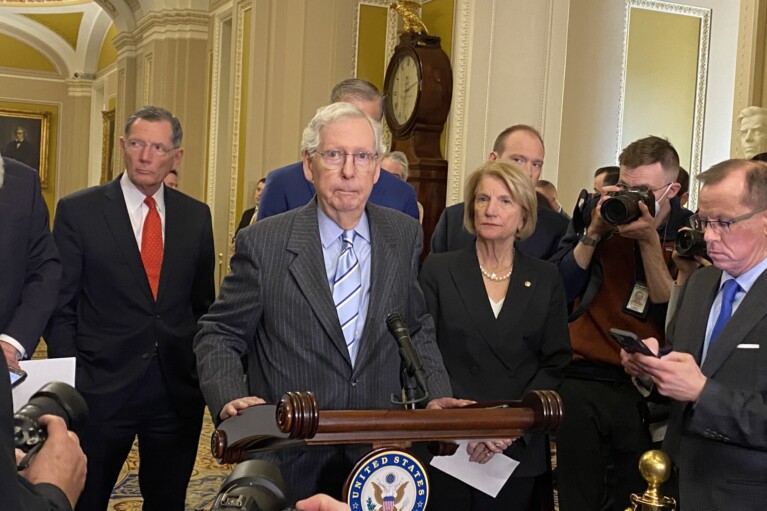Researchers to Quit USDA Rather Than Leave Washington Metro Area

WASHINGTON — As the Trump administration prepares to move two Agriculture Department research agencies out of the nation’s capital, many of the agencies’ employees appear ready to quit their jobs rather than leave their homes.
Democratic lawmakers in Maryland are scrambling to put the brakes on the administration’s plans in an effort to keep their constituents’ jobs nearby, but their attempts so far haven’t worked.
The Trump administration announced plans last month to move the Economic Research Service and the National Institute of Food and Agriculture out of Washington, D.C., to a new office in the Kansas City area. The administration is pushing a tight timeline to try to relocate both agencies by the end of September.
Agricultural researchers and economists faced the first deadline this week to tell the agency if they would uproot their lives and move to Kansas City or leave their jobs. The majority of the workforce has not accepted the transfer to Kansas City.
The Economic Research Service has received 72 acceptances to move to Kansas City and 99 declinations, a USDA spokesperson told Maryland Matters. NIFA has 73 acceptances and 151 declinations. In both agencies, the number of people declining includes employees who did not respond at all to their reassignment letters.
USDA officials say they planned for these ranges and expect the numbers to fluctuate until the end of September, when all employees are supposed to report to the Kansas City region. Employees are free to change their status until Sept. 30, according to USDA.
Democrats have thus far been unable to stop the proposed move, but 19 House and Senate Democrats asked Agriculture Secretary Sonny Perdue this week to at least slow down the process to address the concerns of staff members who are fleeing the agencies.
“We remain concerned that this restructuring will gut the ability of these agencies to successfully carry out their important missions,” the lawmakers wrote in a July 16 letter to Perdue. “We also remain concerned that the quality of work at ERS and NIFA has already been undermined and will continue to degrade”
The letter was signed by Maryland Democratic Sens. Ben Cardin and Chris Van Hollen, as well as Democratic Reps. Steny H. Hoyer, C.A. Dutch Ruppersberger, John P. Sarbanes, Anthony G. Brown, Jamie Raskin and David J. Trone.
The lawmakers are asking Perdue to extend the timeline for employees to respond to the move, offer telework options, and work out some issues with the union in an effort to mitigate the damage as employees flee the agencies.
Even for those employees planning to move to Kansas City, the process has been difficult and disorganized, according to agency employees. They are supposed to start working in Kansas City by Sept. 30, but agency employees say they still have not received clear information on travel and relocation payments.
The federal government also has not yet secured office space in Kansas City, so employees who want to move there do not know where they would be working.
A skeleton crew?
The unions representing the employees think the final attrition numbers could be much higher than USDA’s estimates — barely leaving a skeleton of the highly specialized workforce.
They estimate ERS could lose more than 80 percent of its employees and NIFA could lose more than 90 percent of its workforce. The American Federal Government Employees Local 3403 based that estimate on an informal survey of employees.
Some employees have accepted the reassignment as a placeholder until they can find new jobs, according to employees who work at the agencies.
“No matter what happens, they have done possibly irreversible damage to this organization and the capacity of the government to do solid science-based decisions in agriculture,” said Laura Dodson, an agriculture economist and AFGE Local 3403 union steward representing her colleagues at ERS.
“Even if this move is stopped today, it would take probably five years to build us back up, and if this move fully carries out, there is no telling what the agency is going to look like even in six months.”
The push to move the agencies is part of a larger attempt across the Trump administration to diffuse power away from Washington. The Trump administration has framed the USDA move as an effort to bring agriculture research to the heartland and save taxpayers money. USDA estimates it will save $300 million over 15 years from employment and rent.
The two specialized USDA agencies — both currently based entirely in southwest Washington — produce reports and give grants for other research groups. ERS analyzes trends in agriculture, food and the environment. NIFA, established as part of the 2008 farm bill, oversees grants to scientists and research institutions across the country for agriculture research programs. Most of their employees are highly educated with specialized advanced degrees.
Democrats have tried various tactics to block the move, but USDA’s quick timeline might mean Congress can’t stop the train in time. Efforts fell flat last month to attach a rider to a defense bill that would block the move.
House lawmakers included language to keep the agencies in the Washington region in their 2020 spending bill for USDA. The Senate has not yet approved a spending bill, but that chamber is less likely to approve language to block the move. Republicans largely support the relocation and Sen. Roy Blunt (R-Mo.), a big supporter of the move to Kansas City, is on the Senate Appropriations agriculture subcommittee.
Did someone forward this to you?
Get your own daily morning news roundup in your inbox. Free. Sign up here.




 Creative Commons Attribution
Creative Commons Attribution